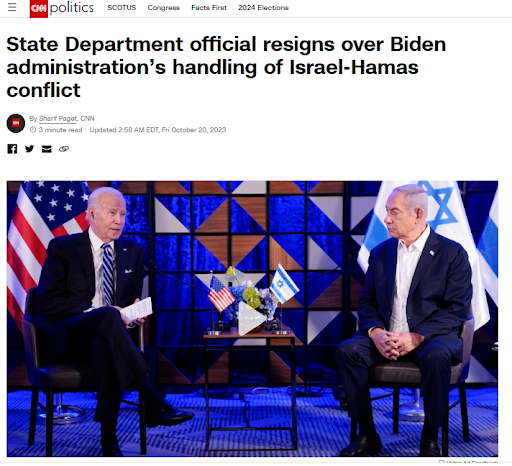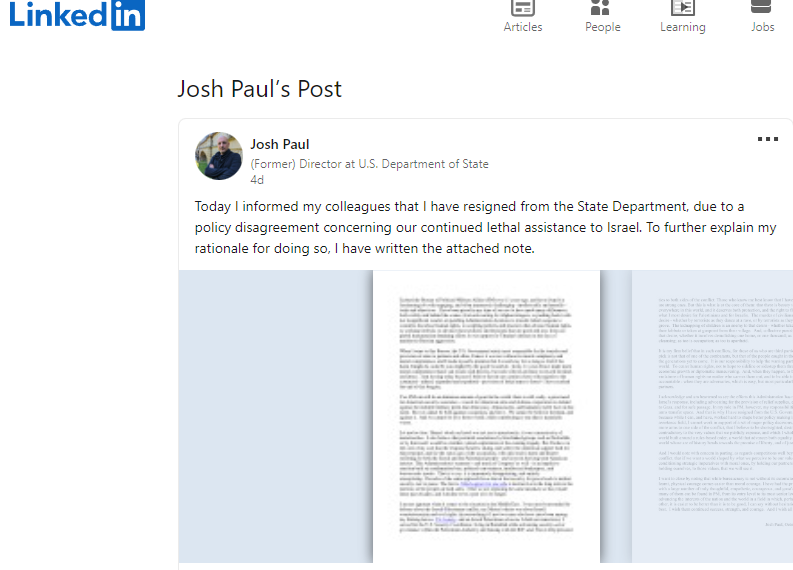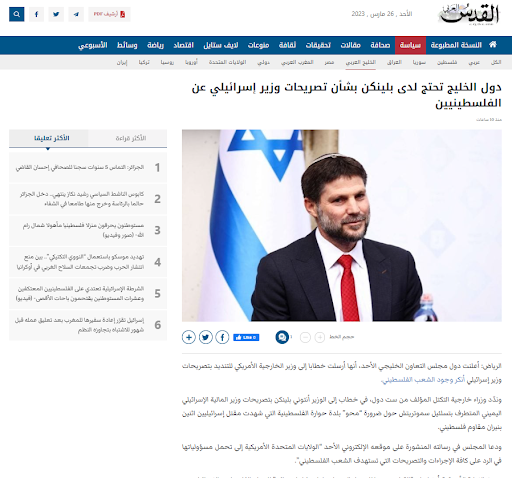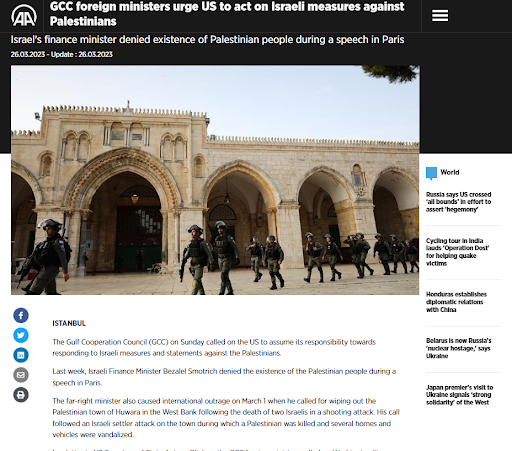
State Department official resigns over Biden administration’s handling of Israel-Hamas conflict
A State Department official in the bureau that oversees arms transfers resigned this week in protest of the Biden administration’s decision to continue sending weapons and ammunition to Israel as it lays siege to Gaza in its war with Hamas.
In his resignation letter, Josh Paul, who has been the director of congressional and public affairs for the State Department’s Bureau of Political-Military Affairs for over 11 years, said the Biden administration’s “blind support for one side” was leading to policy decisions that were “shortsighted, destructive, unjust and contradictory to the very values we publicly espouse.”
“The response Israel is taking, and with it the American support both for that response and for the status quo of the occupation, will only lead to more and deeper suffering for both the Israeli and the Palestinian people,” he wrote, adding, “I fear we are repeating the same mistakes we have made these past decades, and I decline to be a part of it for longer.”
Josh Paul bio and credentials:
(Former) Director at U.S. Department of State
Previously - and for the last decade - Director of Congressional & Public Affairs, Bureau of Political-Military Affairs, U.S. Department of State, with responsibility for shaping and implementing an holistic communications strategy in support of U.S. security assistance, arms transfers, and global defense partnerships. Previously - consultant for the US & UK governments in Iraq & Palestine on institutional development and security sector governance; Hill alum (Steve Israel, D-NY); stints in Army Staff (G8) & OSD Policy (ME).





































































